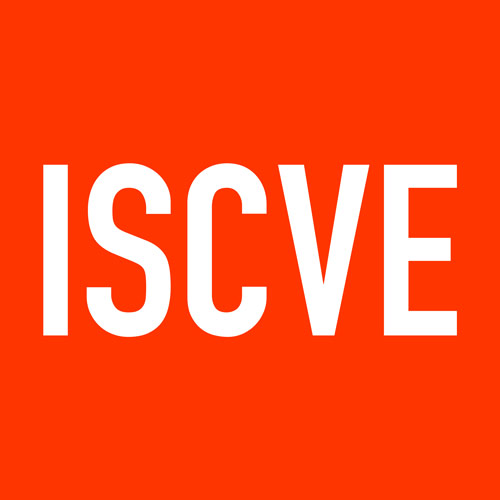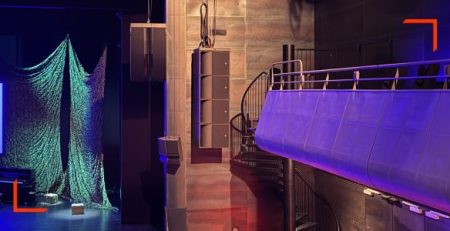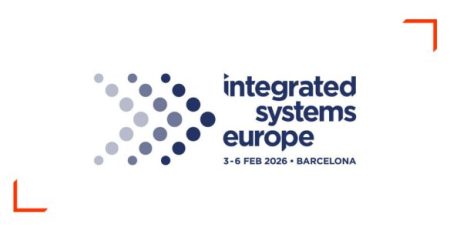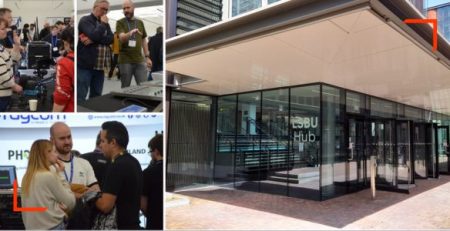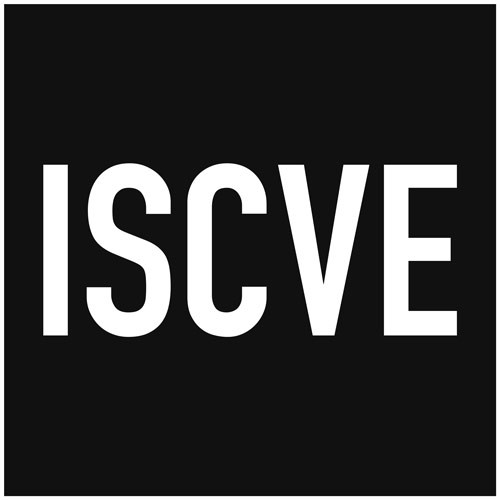RCF equips new £84m Welsh International Conference Centre
RCF equips new £84m Welsh International Conference Centre

When the £84m International Convention Centre Wales (ICCW) opened in September last year, it was not only the first of its kind in Wales, but this joint venture between the Welsh Government and the Celtic Manor Resort has delivered an astonishing 26,000 sq.m. of floor space for meetings, conferences and exhibitions (the size of four international rugby pitches).
Incorporated within this is a 4,000 sq.m., pillar-free, multi-reconfigurable main hall, which threw up many challenges for technology contractors, Stage Electrics. Their solution was to specify an end-to-end workflow from the extensive RCF catalogue, tying nearly 800 speaker products (and over 1,000 RCF components in total) into a multi-use PA in the main hall and mobile systems for the meeting rooms, merged into a fully-compliant PAVA environment.
Stage Electrics were awarded the contract for A/V, lighting (including public space), technical loose equipment and stage engineering consultancy, as outlined by Russell Phillips, VP, Facilities and Development at Celtic Manor. But first Simon Cooper, who led Stage Electrics’ engineering team, along with Business Development Manager Saul Eagles, needed to initiate a stringent, but uncompromising cost-cutting programme to bring it into budget.
Stage Electrics have enjoyed enormous success installing RCF systems into a wide range of applications for over 15 years, as Dan Aldridge, their Commercial & Projects Director, points out. “We specify RCF because of its reliability, the support we receive—particularly with regard to very large multizone distributed systems—and the price point. But the products are also sensibly differentiated by price whilst delivering exceptional performance and that makes it compelling for clients especially when ‘A-B’ listening and measurement tests are carried out as part of the evaluation, as was the case here.”Mick Butler, RCF’s UK Regional Sales Manager North conducted a site demo of the TTL 6-A three-way active line source, and the decision to adopt it as the Main Hall system was rubber-stamped by Eric Rymer from venue consultants, Right Solutions.Originally, the voice alarm / evacuation had been subject to a separate contract, using another brand. But since this approach would have vastly exceeded the budget, Butler introduced Simon Cooper to Francesco Venturi from RCF’s Engineering Support Group. Talks were quickly finalised to place an RCF DXT 9000 multi-platform comms system (linked to RCF ceiling speakers, aluminium projector speakers, and Media background music speakers at the heart of the set-up. With cost efficiencies achieved, the entire workflow was now in the hands of a single contractor.
The sound reinforcement in the Main Hall functions independent of the PAVA. For this, Stage Electrics provided 18 x TTL 6-A elements, 10 TTL 6-AS active bass modules with RCF SUB 8006-AS providing further LF extension, all controlled using RCF’s proprietary RD Net. The 3-way TTL6-A line source is equipped with 2 x 12” low frequencies woofers, 4 x 6.5” midranges and a 3.0” voice coil compression driver while the TTL 6-AS contains three 12in woofers. Flexible and quick to rig, this scalable system can be set up as a one-box solution or expanded into a complete column, optimised by allowing the TTL 6-A tilt angle to be set accordingly.
A further six RCF EVOX10 and four EVOX12, along with the HD 10-A, HD 12-A and SUB 8006-AS have been provided as a highly portable roll-in/roll-out system for use in their 15 flexible meeting rooms, in addition to Media M801 for further reproduction purposes, including background.
As Mick Butler points out, “TTL 6-A can do all that and as it’s a line source system with wide horizontal and controlled vertical pattern—you don’t need to do comprehensive calculations every time you reconfigure the room, which can be done extremely quickly with this system.”
The addition of RCF’s DXT 9000 component became the icing on the cake once it had been adopted. “There was only one company we would feel comfortable in putting forward and that was RCF, because we wanted outstanding quality both for evacuation and the background music system,” said Aldridge.
Francesco Venturi entered the process, designing an integrated site-wide PAVA solution to meet all standards in terms of emergency purposes, including a single infrastructure of EN54-24 certified speakers, while allowing for general entertainment plus background music reproduction in common areas, along with suitable voice reinforcement in meeting rooms for conferencing. Virtually every room has an RCF speaker, whether PL70EN ceiling speakers, horns, BS 5EN pendant speakers or DP1420EN aluminium sound projectors.
In addition to the main hall, the ICCW is a 5-storey building, with a three-floor entrance atrium, meeting rooms, two car park levels and kitchens, as well as a 1500 raked seating auditorium, which proved a major challenge. “After considering Stage Electrics’ requirements we came up with the most fitting topology for every space, considering all parameters,” he said.
The large atrium presented a particular challenge with regard to STI, and this was overcome, with the design validated by EASE measurements, based upon predicted performances. This approach fulfilled the pre-conditions for a consistent design. In the main hall, DP1420EN aluminium sound projectors, deployed at a height of nine meters from floor level on a rain-diffusion basis, allow for a measured average STIPA figure that exceeds performance requirements of the Voice Alarm standard.
Regarding EN54-16 certified electronics, signal distribution is via three technical rooms, sharing monitored data and audio (Dante) upon an Ethernet fibre ring-configured network. Besides the emergency facilities, the VA system needed to allow for local inputs broadcast on a zonal basis supporting a third party audio-over-IP distribution system that manages routing and room combining capability by means of wireless control surfaces.
Finally, the client turned to RCF’s wiring department for PAVA rack building, device wiring, testing and pre-configuration. Acceptance testing activity with Stage Electrics was also managed at RCF’s Reggio Emilia HQ. The final count consisted of six cabinets housing EN54-16 certified electronics (matrices and amplifiers), EN54-4 certified battery chargers for secondary power feed (including batteries), distributed in the three technical rooms and interconnected on an Ethernet fibre ring-configured network supported by dedicated network switches programmed by RCF.
The PAVA installation (andwider technical requirements) were commissioned by RCF personnel alongside Stage Electrics team members, comprising Simon Cooper, technical project manager Chris Brant, site team leader Aaron Godsmark and commissioning engineer Steve Chappell.
Speaking of the success of the integration ICCW Head of Technical Services, Simon Denman-Ellis, said: “What the team liked most is the ease of use with the RCF systems. Everything just works seamlessly, a real plug and play set-up but with the high-end sound and reliability you would expect to find in a much more complex system.”
